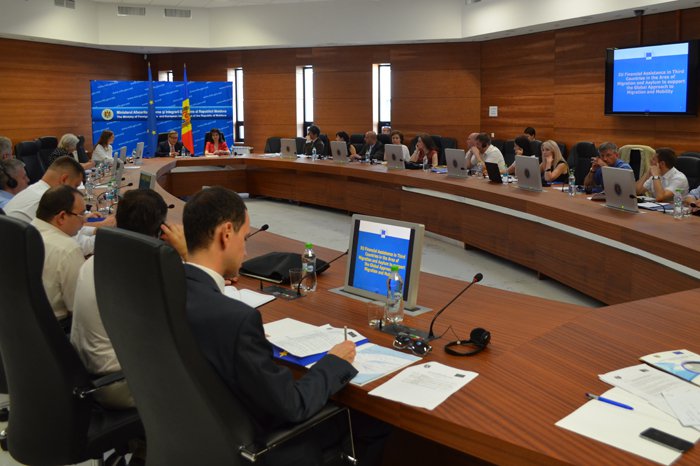Chisinau hosts extended meeting of Moldova-EU Mobility Partnership local platform - Este necesară traducerea In english
09:24 | 10.07.2015 Category: Official
Chisinau, 10 July /MOLDPRES/ - The Foreign and European Integration Ministry hosted the traditional extended meeting of Moldova-European Union Mobility Partnership local platform on 9 July, the Foreign and European Integration Ministry’s information and media communication service has reported.
At the meeting’s opening, Deputy Foreign and European Integration Minister Daniela Cujba and Head of the EU Delegation to Moldova Pirkka Tapiola praised the dynamic and flexible nature of the Mobility Partnership. The officials underlined the positive role of this cooperation format for implementation of the Moldova-EU Association Agreement and for visa regime liberalisation. The sides also highlighted the opening of Moldovan authorities to share the gained experience along those 7 years of presence of Mobility Partnership with interested states, especially within European Neighbourhood Policy.
The first session was dedicated to Moldova’s active role within Global Forum on Migration and Development, as well as within talks on UN Post-2015 Development Agenda. The participants paid special attention to development of government’s strategic vision about ties with Diaspora for 2015 – 2025, reintegration of returned migrants and gender dimension of migration, especially in the context of projects implemented by NEXUS Moldova and UN Women.
The second session focused on labour migration management, including on medical staff, as well as on the role of technical vocational education to develop the Moldovan labour market. In this context, the officials stressed the cooperation with Israel, Italy, France, Germany and ETF, as well as the EU budgetary support to reform technical vocational education.
The evolutions in development of the national system of international protection, as well as the cooperation possibilities with the European Asylum Support Office, in order to strengthen institutional capacities of the Bureau for Migration and Asylum, were also presented.
The third session was dedicated to development of national systems for border management and document security ensuring, especially through the viewpoint of FIRMM and MIGRECO projects, implemented by the International Centre for Migration Policy Development (ICMPD) and, respectively, International Organisation for Migration (IOM), which contributed to foster capacities of authorities, including by fulfilling conditions of the Moldova-EU Action Plan on Visa Free Regime.
The participants exchanged views about the present situation and development prospects of Mobility Partnership, including in the context of new trends as to development of migration at EU level.
(Editor M. Jantovan)

